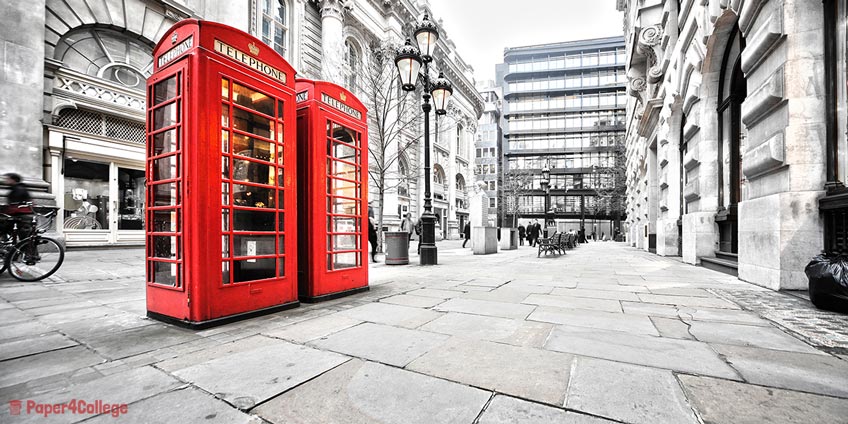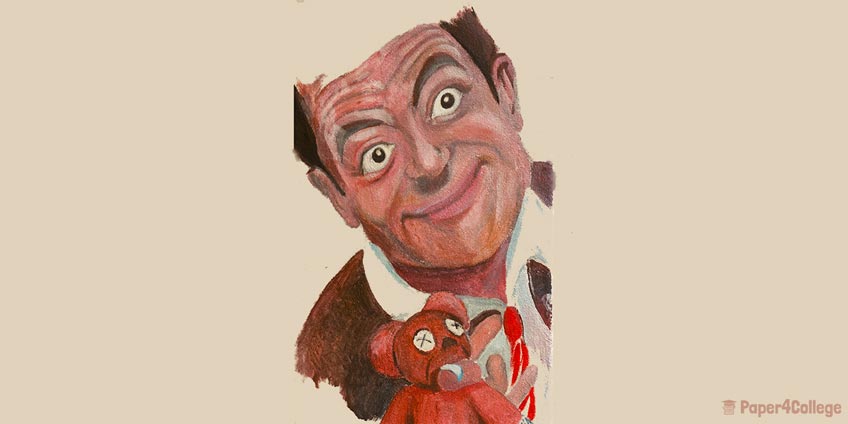Foggy English Humour in Details

Why English humour is invariably associated with the British one, where to learn the skill of sharp jokes, since when do Englishmen consider humour their outstanding national feature – these and many other questions are answered. It lives in books, films, everyday life, and our article. It is Its Majesty English Humour.
Homeric laughter behind the scene and the imperturbable face of the joker are the main features that distinguish the English humour. Most often it is called British or lambent because most of the jokes are built on the ambiguity of a phrase or verbal pun.
Those who are fluent in English can quickly grasp these semantic nuances. Here is another incentive to seriously study the language. Believe me, all communication on Foggy Albion is permeated with this lambent humour. And even an innocent phrase of greeting, uttered with a mysterious smile, can be an easy taunt at you. The best solution is to respond in the same manner. What we will learn now.
It is important to remember one feature: the English are very fond of when a man can laugh at him/herself. They do it themselves several times a day, making fun of each other and in the family, at work, and in transport. Your dull face in a public transport would be incomprehensible to them: why should one waste time if you can choose a target and "have a dig" at the passenger standing next to you. So, let us say, ask him/her a couple of catchy questions.
For example:
- - What is the name of the person without the left arm and leg?
- - All right!
Or more:
- - What is the longest English word?
- - Smiles.
So try and translate these answers into your own language so that the meaning is not lost and it was funny. With the inherent Englishmen stiffness and reliability, let us try to understand all the subtleties point by point.
English Humour in Books

These Englishmen are such humourists. They manage to joke even in the title of the book. Here is a small selection as an example (all the headlines are completely real!):
- Enjoy Your Chameleon;
- New Guinea Tapeworms and Jewish Grandmothers: Tales of Parasites and People;
- What To Say When You Talk To Yourself;
- Teach Your Wife How To Be A Widow;
- Old Tractors and the Men Who Love Them: How to Keep Your Tractors Happy and Your Family Running.
English Humour in Films
This is the fact that you would rarely find any American abusive language (on the letter f or s) in British comedies. And only for this you can appreciate British jokes.
Most of the English comedies are designed to make the viewer laugh at the hero who is in an embarrassing situation. Mr. Bean has already become a classic of the genre, there is nothing to discuss. Rowan Atkinson's face is unfamiliar only for those who read only books.
Some are shocked that the British manage to make fun of even such things, where it is customary for an average person to mournfully purse a mouth and throw accusing glances at anyone who smiles. What can we do: it is in the traditions of the English – the ability to laugh at themselves and all life manifestations.
Hence the abundance of "black humour" in English comedies. Take, for example, Keeping Mum: a typical British old woman with a side of strange, armed with a shovel or a frying pan, strikes everyone who prevents the beloved family from well-being. And all this with a sweet smile on her lips.
Among the most modern comedies, well revealing English humour, it is worth noting Bridget Jones’s Diary. A plump woman without complexes dressed everyday " better than previously" manages to build romantic relationships and knows how to make fun of herself.

English Humour in Jokes
Most English anecdotes are based on the play on words. Therefore, they are difficult to translate (and most often – it is impossible at all). The only way out is to learn English and read in the original.
If you can talk about humour seriously, then jokes can be classified by class no worse than plants and animals. For example, there are rather silly jokes, which are called "elephant jokes". In contrast to them – sophisticated humour on the base of several meanings of the same word. In addition, we can also distinguish irony or a "dry sense of humour", as well as primitive jokes like falling on a banana skin - (banana skin sense of humour). And, finally, anecdotes, where all the relish lies in the illogicality of the phrase - shaggy-dog stories.
English Humour in Everyday Life
Going to England, be careful: you will be joked over everywhere, and all this at the most unexpected moment. Your main task is not get lost and play along. In this case, you are provided with a sympathy/signed contract/profitable partnership/mutual love.
Here are few tips to make life easier:
- 1. If a stranger approached you and said something about the weather, then you should urgently support this remark. And if in a torrential rain you are told that "the weather today is good, isn’t it?", Immediately nod and with a broad smile answer: "Of course, yes. I hope that tomorrow will be even better".
- 2. The British sincerely believe that humour is their national trait and is practically unknown by other peoples. Do not argue with this. With a doomed face, drink your whiskey, and continue the conversation.
- 3. Englishmen tend to play down everything. If you want to feel "one of them", then when you are asked about the weather in Africa, answer "a little hotter than here."
- 4. The English also like self-irony. Who ridicules him/herself at most – wins the first prize.
- 5. If you started a dispute in the pub - you should know: it is just entertainment, words cannot be taken too seriously. Did the bartender tell you that he will not pour anymore? Answer, to hurry up and bring another pint. Mutual smiles are guaranteed.
In summary, we can say: the main principle of the British - take it easy. This is the basis of their humour, traditions, customs. And, probably, they are right.
